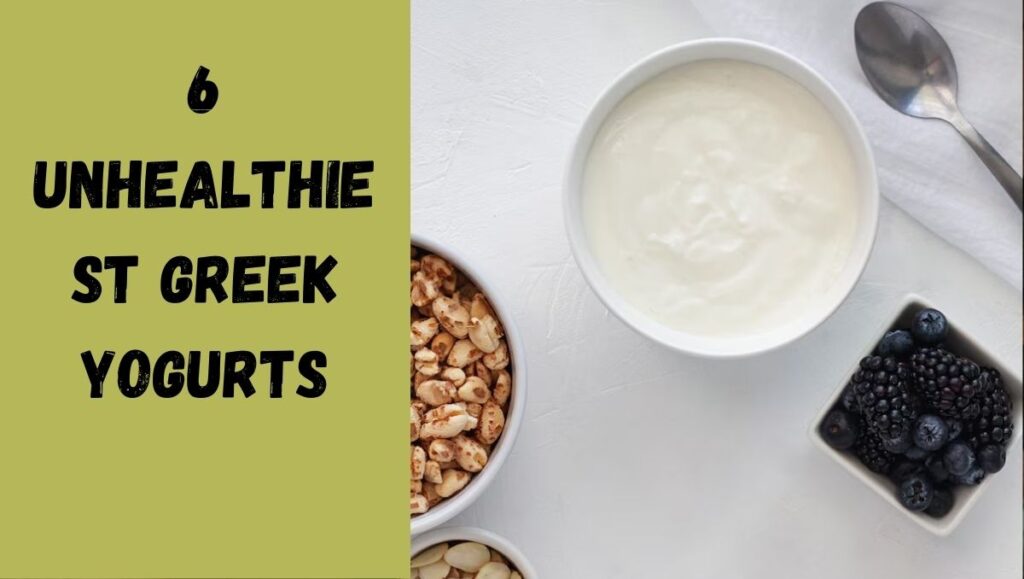In nutrition and wellness circles all around, gut health is now a hot issue. Trillions of microorganisms, including bacteria, fungus, viruses, together referred to as the gut microbiome, call home the gut. From digestion to nutrition absorption to immunological control to even mental health via the gut-brain axis, many body processes depend on this varied environment.
Maintaining a balanced and varied gut flora is now understood by scientists to be essential for avoiding digestive problems, boosting immune system function, and enhancing general well-being.
always known as a fermented dairy product, yogurt has always been a great food for maintaining intestinal health. Yogurt’s probiotic content helps to bring good bacteria into the digestive tract, therefore promoting microbial balance and digestive efficiency by means of this action. Not all yogurts, meantime, are made equally.
The best gut health results, according to a novel study, come from yogurt combinations including several probiotic strains, prebiotics to feed these bacteria, and nutrient-rich additives supporting microbial development and lowering of inflammation. This page explores this innovative research and provides a useful guidance on selecting or cooking yogurt that best supports your gut.
What Makes Yogurt a Gut Health Powerhouse?
Fundamentally a probiotic-rich food, yogurt consists of live bacteria that, in reasonable quantities, promote health. Lactobacillus bulgaricus and Streptococcus thermophilus, the two classic probiotic strains used to ferment yogurt, have been demonstrated to boost gut health and aid lactose digestion. For many people, yogurt is simpler to stomach than milk since these strains help break down dairy proteins and carbohydrates.
Building on this understanding, the new study emphasizes how much yogurt’s advantages grow when it includes a wide range of probiotic strains. Working in concert to increase microbial diversity, several strains can occupy various niches inside the gut. This variety is important since improved resilience against infections, lower inflammation, and better nutrition metabolism are connected to a rich gut microbiota. Some strains, for instance, can generate short-chain fatty acids (SCFAs) such as butyrate, which control immunological responses and reinforce the gut lining.
Apart from probiotics, yogurt is loaded in vital nutrients including calcium, premium protein, vitamins B2 (riboflavin), and B12, all of which improve general health and help the expansion and activity of good gut flora. The study also revealed that yogurts enhanced with prebiotics, indigestible carbohydrates that support probiotics, can greatly increase the survival and colonization of these helpful bacteria. Prebiotics such as inulin and fructooligosaccharides (FOS) induce the expansion of health-promoting bacteria, hence generating a positive feedback loop that improves gut condition.
The Role of Probiotic Strains in Yogurt Combinations
Health benefits and mechanisms of probiotic strains differ greatly. Particularly Lactobacillus acidophilus, Bifidobacterium lactis, and Lactobacillus casei, the study emphasizes especially the relevance of yogurts including several probiotic species. Targeting distinct sections of the gastrointestinal tract, each of these strains offers particular advantages:
- Lactobacillus acidophilus helps maintain the intestinal lining and prevents the overgrowth of harmful bacteria.
- Bifidobacterium lactis improves digestion and immune system function, and is linked to reduced symptoms of irritable bowel syndrome (IBS).
- Lactobacillus casei supports anti-inflammatory responses and helps modulate gut microbiota balance.
The study showed that yogurt products including these strains in combination had a better effect on gut microbiota diversity than yogurls with only conventional single strains. This synergy also improved nutrient absorption efficiency, and ease bloating and stomach pain.
Furthermore, certain strains help the gut microbiome to be resilient against outside stresses such antibiotics, infections, and dietary changes. Therefore, consumers should seek for products boasting three or more probiotic species with assured living cultures and examine labels for strain variety and amounts while shopping for yogurt.
Prebiotics: The Unsung Hero in Yogurt for Gut Health
Although prebiotics are their necessary fuel, probiotics are the active, helpful bacteria. Humans cannot break down some forms of fiber, but gut bacteria break them down to generate helpful chemicals. Prebiotics are such fibers. The basis of what scientists refer to as synbiotic foods—those that mix prebiotics and probiotics for best gastrointestinal benefit—is this symbiotic interaction.
Yogurues strengthened with prebiotics including inulin, resistant starch, and fructooligosaccharides showed a clear impact on raising populations of beneficial bacteria including Bifidobacterium and Lactobacillus, the study found. By providing a substrate, these prebiotics help bacterial colonization and activity, therefore enabling the bacteria to flourish and outcompete dangerous pathogens.
Prebiotics also boost the synthesis of SCFAs like acetate, propionate, and butyrate, which feed colon cells, preserve intestinal barrier integrity, and lower systemically inflammation. For instance, butyrate has been demonstrated to stop “leaky gut” syndrome, connected to allergies and autoimmune illnesses.
Choosing prebiotic-fortified commercial yogurts or including natural prebiotic-rich foods like bananas, oats, garlic, or chicory root extract to your yogurt bowl will help you to improve the prebiotic content of yogurt in practice. This combined action helps to foster a more robust microbiota and magnifies advantages for gut health.
Nutrient Additives that Amplify Yogurt’s Gut Health Benefits
The study also looked at gut health effects of yogurt plus nutrient-dense additions. All known to have prebiotic and anti-inflammatory qualities, these additions include omega-3 fatty acids, soluble fiber sources, and polyphenol-rich fruits and nuts.
- Polyphenols (found in berries, nuts, and seeds) act as antioxidants and have selective antimicrobial effects, encouraging beneficial bacteria growth while inhibiting pathogens.
- Omega-3 fatty acids (from flaxseeds, walnuts, or chia seeds) reduce gut inflammation and improve mucosal immunity.
- Soluble fiber (from chia, psyllium, and oats) provides additional prebiotic effects, increasing SCFA production.
Yogurt combined with these superfoods forms a multi-nutrient food matrix that improves gut barrier function, lowers gut inflammation, and encourages bacterial diversity. For example, including flaxseeds and blueberries to your yogurt not only gives taste and texture but also provides molecules that favorably change your intestinal ecology.
This whole approach to yogurt intake transforms a basic snack into a robust functional food with broad-spectrum health advantages including possible protection against metabolic diseases, allergies, and mental health concerns.
How to Choose or Prepare the Best Yogurt Combination at Home
Navigating store shelves for gut-healthy yogurt can be confusing. Many commercial yogurts are high in added sugars and contain minimal probiotic diversity, reducing their gut benefits. The study recommends:
- Look for “live and active cultures” labels that specify multiple probiotic strains.
- Choose yogurts with minimal or no added sugars to avoid feeding harmful gut bacteria.
- Greek yogurt and Icelandic skyr are excellent options due to their thick texture, high protein, and often diverse bacterial cultures.
- Consider prebiotic-fortified yogurts or add prebiotic-rich foods yourself.
Making homemade yogurt is a really good approach to personalize probiotic strains and ingredients for people that prefer do-it-yourself projects. Beginning with a premium starting culture with many strains, you can add your own prebiotics and nutrient-dense foods including oats, bananas, chia seeds, and berries.
Made from scratch, a basic method calls for heating milk, chilling it, adding starter cultures, and incubation for 8 to 12 hours. Usually free of chemicals and with more live bacteria, fresh handmade yogurt guarantees optimum influence on intestinal health.
Comparison of Yogurt Types and Their Gut Health Benefits
| Yogurt Type | Probiotic Strains Present | Prebiotic Content | Added Nutrients | Gut Health Benefits |
|---|---|---|---|---|
| Regular Yogurt | Lactobacillus bulgaricus, S. thermophilus | Low | Minimal | Basic probiotic support for digestion |
| Greek Yogurt | Multiple Lactobacillus strains | Moderate | High protein | Improved satiety, digestion, and immunity |
| Icelandic Skyr | Diverse probiotic strains | Moderate | High protein, low sugar | Strong microbiota support, inflammation reduction |
| Probiotic Blended Yogurt | Multiple strains including Bifidobacterium | High | Enriched with prebiotics | Superior microbial diversity and gut healing |
| Homemade Yogurt | Customizable probiotic mix | Customizable | Can include superfoods | Personalized gut microbiome and nutrient support |
The Impact of Yogurt on Immune System and Mental Health
Apart from digestion, the gut microbiota is crucial for immune system and brain health. The new study validates that by changing gut-associated lymphoid tissue (GALT), a fundamental component of the immune system, yogurt combining probiotics and prebiotics can help control immunological responses. Many autoimmune disorders and allergies start with chronic inflammation, thus this regulation helps lower it.
Yogurt probiotics also clearly affect the gut-brain axis. Some probiotic strains generate neurotransmitters such as gamma-aminobutyric acid (GABA) and serotonin, which assist control cognitive ability, stress, and mood. In clinical studies, participants eating yogurts including several probiotic strains and prebiotic additives reported lower anxiety levels and improved general mental health.
This growing knowledge points to the ideal yogurt mix supporting overall health: it boosts mental resilience, increases immunity, and heals the gut.
Future Directions and Research on Yogurt and Gut Health
While this study clarifies the gut health potential of yogurt, the discipline of microbiome research is fast changing. Future developments comprise:
- Personalized probiotic yogurts tailored to individual microbiome profiles identified through gut sequencing.
- Optimization of fermentation techniques to enhance probiotic viability and activity.
- Expansion of non-dairy probiotic yogurts fortified with diverse strains and prebiotics, catering to vegan and lactose-intolerant populations.
- Exploration of synergistic effects between probiotics, prebiotics, and other functional food components for targeted health outcomes.
Consumers may soon be able to get yogurt products scientifically tailored for their own gut needs as research advances, therefore optimizing health benefits in tasty and practical forms.
FAQs
1. What probiotic strains should I look for in yogurt to improve gut health?
Aim for yogurts that include multiple strains like Lactobacillus acidophilus, Bifidobacterium lactis, and Lactobacillus casei, as they offer complementary benefits for different gut regions.
2. Can I improve store-bought yogurt by adding prebiotics?
Yes! Adding natural prebiotics like bananas, oats, or inulin powder can help feed the probiotics and improve their survival and effectiveness in your gut.
3. Is homemade yogurt better than commercial yogurt for gut health?
Homemade yogurt can be better as you control the probiotic strains and avoid added sugars or preservatives, making it fresher and more customizable.
4. How often should I eat yogurt to maintain a healthy gut?
Eating yogurt daily or at least 3-4 times per week helps maintain a healthy balance of probiotics in the gut.
5. Are plant-based yogurts effective for gut health?
Plant-based yogurts can be beneficial if they contain live cultures and prebiotics, suitable for those avoiding dairy.


